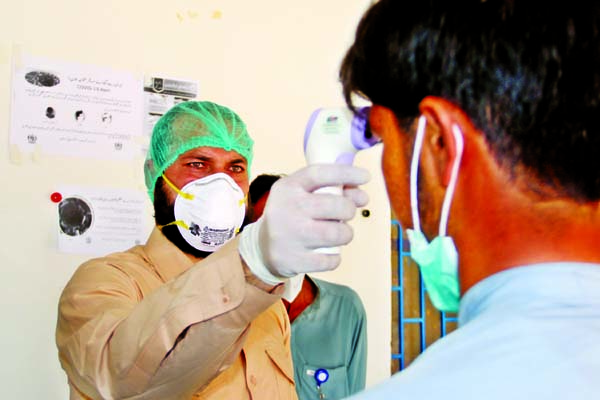
Dr. Muhammad Torequl Islam :
Among the entire population infected with Covid-10, 58% are male. Deaths between 30 and 89 yrs are 66.9 to 82.4% with a maximum death rate within the age group 30-39 yrs (82.4%) in males. It has been suspected that the male hormone testosterone may play a key role behind this fact. The severe acute respiratory syndrome coronavirus 2 (SARS-CoV2) infects lung alveolar epithelial cells after entering through the angiotensin-converting enzyme II receptor (ACE2R). It should be noted that, the ACE2 plays a vital role in lung protection and testicular function. ACE2 is a constitutive product of adult-type Leydig cells.
Therefore, viral binding to ACE2R may deregulate a lung protective pathway as well as may affect testosterone secretion in male. According to the Columbia University Irving Medical Center research group a lowering of testosterone could lessen the severity of Covid-19 disease as this will prevent the entrance of this virus into the lung cells. Two independent research groups from the Italy and the United States demonstrated that the prostate cancer male patients receiving drugs that suppress androgens had a lower chance to SARS-CoV-2 infection. In contrary, the research groups from Germany report that a low testosterone level reduces the immune responses, thereby, increases the risk of incidence of SARS-CoV-2 infection in males. Thus, there is a leading controversial behind the testosterone therapy in Covid-19.
Above 95% testosterone is produced by the testes in men, while a smaller total quantity in women by the adrenal glands, thecal cells of the ovaries, and by the placenta (during pregnancy). Luteinizing hormone (LH) has a direct stimulatory effect on the immune system. It stimulates the Leydig cell to produce testosterone, which is regulated by gonadotropin-releasing hormone (GnRH). Aging attenuate the LH responses to the exogenous GnRH. When bloodstream testosterone levels are low, the pituitary gland is stimulated to release LH. Leydig cell testosterone production capacity also reduces with age (hypogonadism). Generally, a normal circulating testosterone level exerts protective effects on our respiratory system as it can improve the forced expiratory volume in one second and forced vital capacity. Moreover, testosterone is evident to reduce inflammation through downregulating some important pro-inflammatory cytokines, including interleukin (IL)-1-beta, -6, and tumor necrosis factor (TNF)-alpha.
It should be noted that the pro-inflammatory cytokines play a key role in the progression of SARS-CoV-2 infection. Like the other pathogens, SARS-CoV-2 also triggers our body into producing cytokines, that flood to the site of infection and fight with the pathogen. These cytokines also send messages to the body’s immune cells to mount a defense against the pathogen. It is a key part of healing in humans, but the SARS-CoV-2 infection results a hyperinflammatory condition in which the immune system of a patient responds too aggressively leads to an enormous immune response (cytokine storm). This may lead to severe lung damage, acute respiratory distress syndrome (ARDS) and even death.
It has been seen that a low plasma testosterone concentration is related to older age and associated with some comorbidities, such as obesity, diabetes and obstructive sleep apnea. Interestingly, these comorbidities are highly prevalent in Covid-19 patients. A low testosterone level may reduce respiratory muscle activity and overall strength and exercise capacity in human, which has been suggested by a a randomized controlled trial, where an improvement in peak oxygen consumption in men receiving testosterone replacement therapy has been seen.
On the other hand, the transmembrane protease, serine 2 (TMPRSS2) cleaves ACE2 for augmented viral entry and is essential for viral spread and pathogenesis in the infected hosts. Testosterone is evident to modulate TMPRSS2 gene expression, which has been suggested to contribute to male predominance of Covid-19. The TMPRSS2 has been established as a frequently altered gene in primary prostate cancer.
In contrary, a high level of testosterone is responsible for the aggressive behavior in human. In women it increases in bargaining behavior. An abnormal high testosterone level results some serious health problems, including heart muscle damage and increased risk of heart attack, prostate enlargement with difficulty urinating, liver disease, edema in the legs, obesity, hypertension and atherosclerosis. Therefore, controlling the depletion of this important hormone might be a good option to the Covid-19, especially in males with older age and having a confirmed abnormal blood testosterone level.
(Dr. Muhammad Torequl Islam is Assistant Professor, Department of Pharmacy, Bangabandhu Sheikh Mujibur Rahman Science and Technology University, Gopalganj-8100, Bangladesh
E-mail: [email protected])

